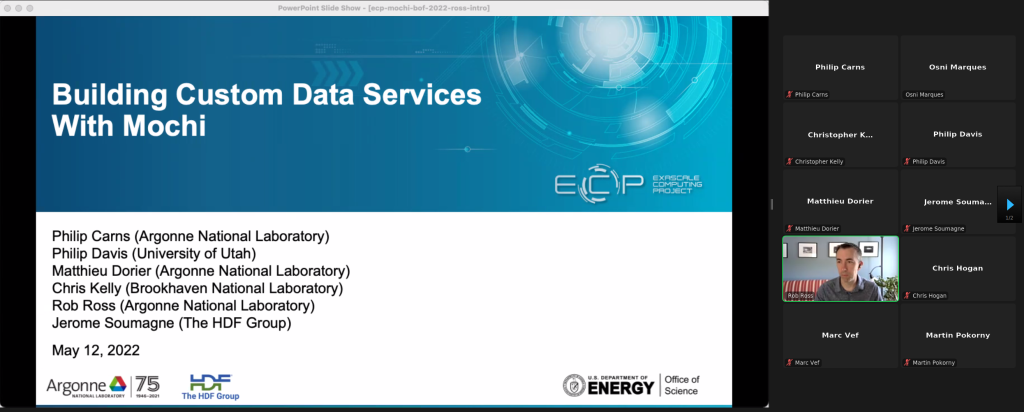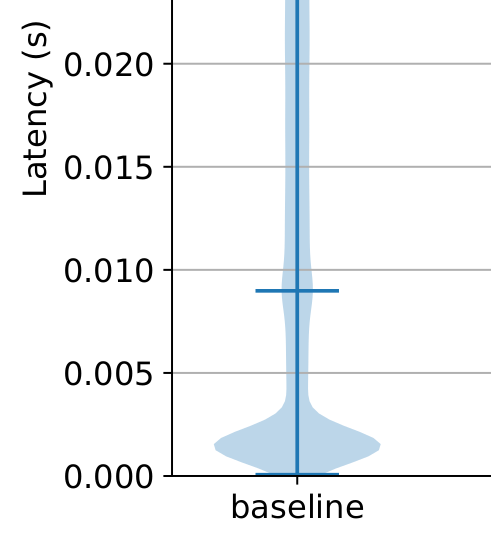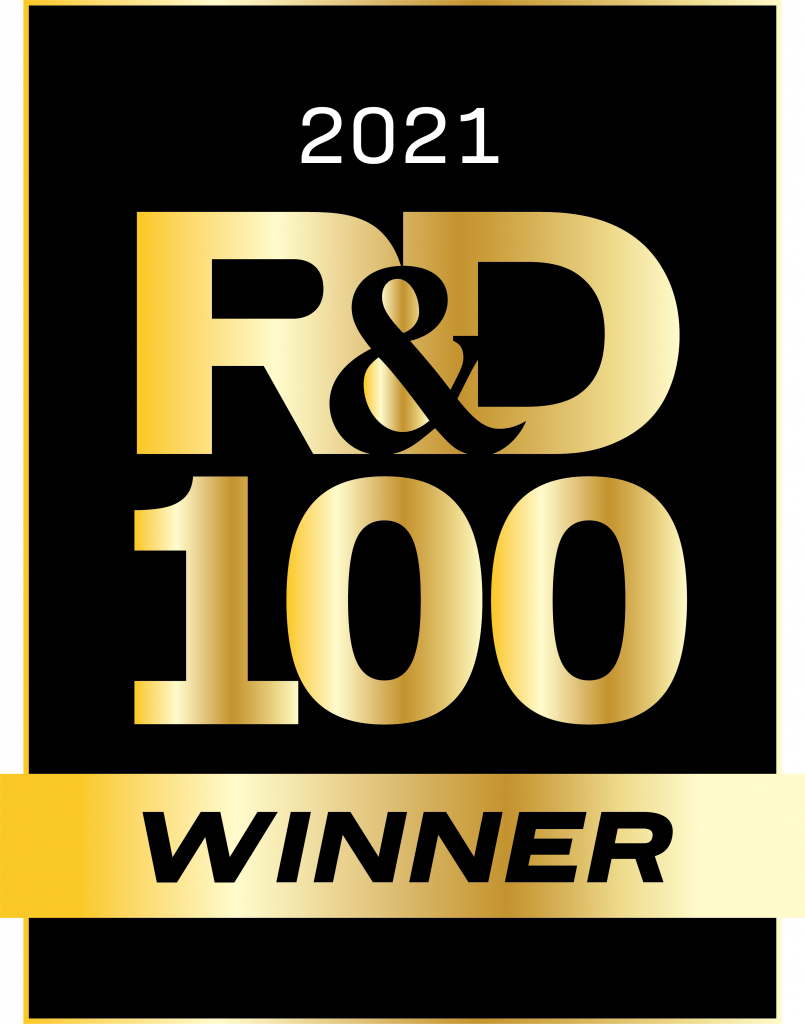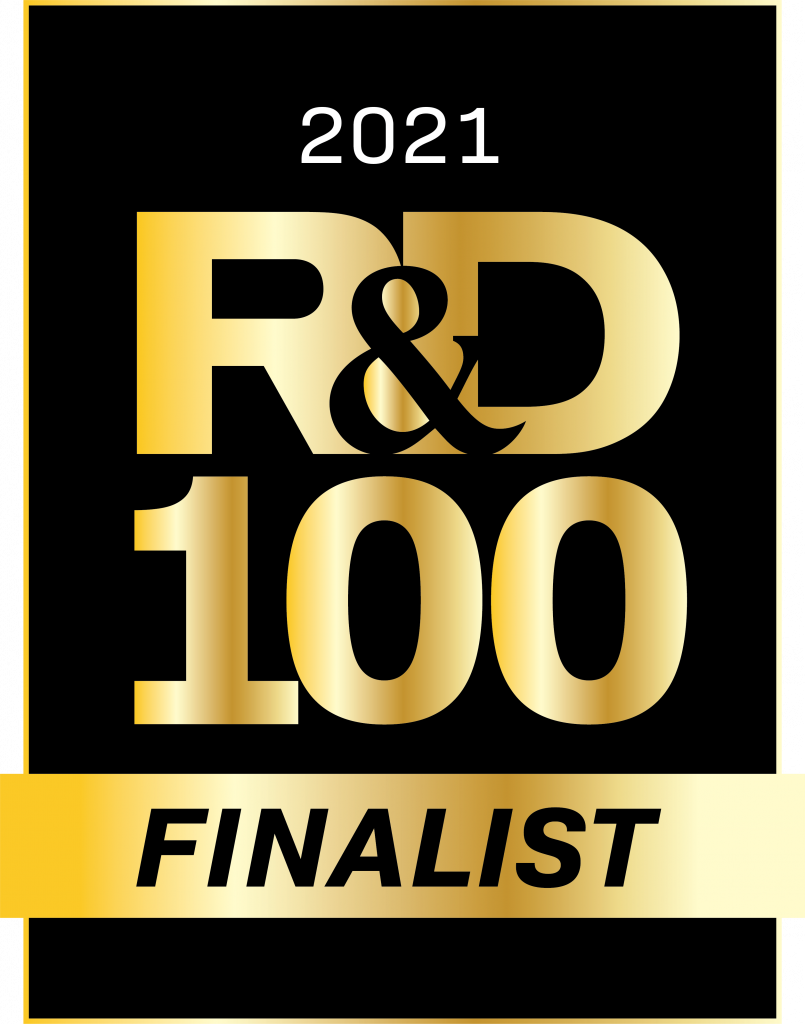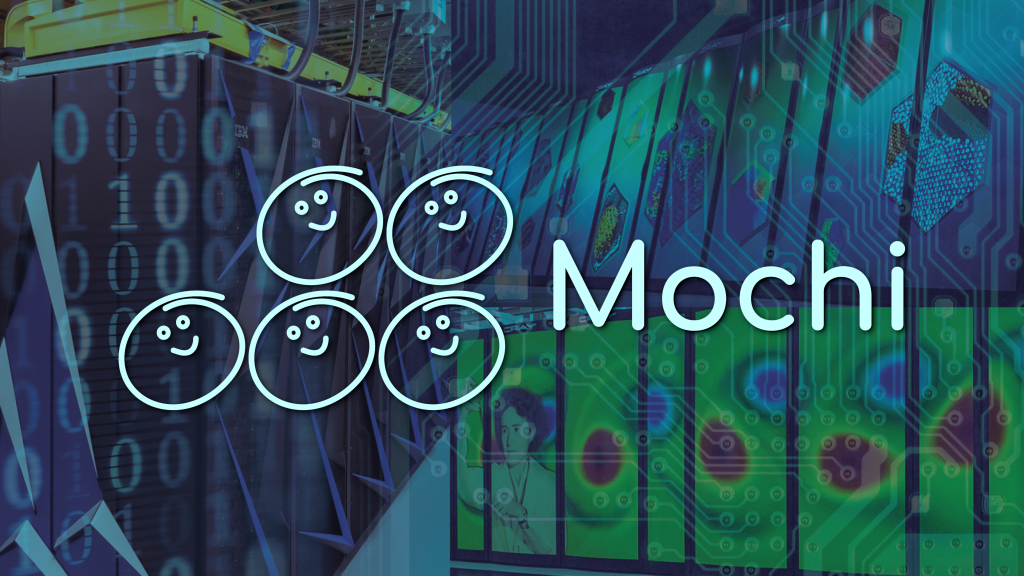
Please join us for the next Mochi quarterly meeting on Thursday, October 27, 2022, at 10am CT. Mochi quarterly meetings are a great opportunity to learn about community activities, share best practices, get help with problems, and find out what’s new in Mochi.
Please suggest agenda items on the Mochi slack space or the mochi-devel@lists.mcs.anl.gov mailing list.
Phone Conference ID: 254 649 841#
We plan to discuss the following topics at this meeting:
- Updates to Poesie (version 0.2), a microservice for embedding Python and Lua scripting languages within Mochi services:
- Updates to the Mochi onboarding process based on feedback gathered at previous quarterly meeting:
- New “Hello Mochi” guide and API documentation at https://mochi.readthedocs.io/en/latest/index.html
- Demo of
margo-info, a new command-line utility included in Margo 0.10 to help diagnose network transport problems
- Summary of HPC Storage Service Autotuning Using Variational-Autoencoder-Guided Asynchronous Bayesian Optimization, recently presented at IEEE CLUSTER 2022

